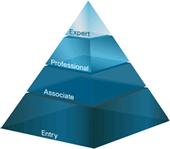cisco router configuration

CISCO ROUTER CONFIGURATION TUTORIAL PDF
cisco router configuration tutorial pdf free download
CISCO ROUTER COMPLETE GUIDE REFERENCE TUTORIAL
cisco router guide tutorial pdf free download
Cisco Router Configuration Commands
| Requirement | Cisco Command |
|---|---|
| Set a console password to cisco | Router(config)#line con 0 Router(config-line)#login Router(config-line)#password cisco |
| Set a telnet password | Router(config)#line vty 0 4 Router(config-line)#login Router(config-line)#password cisco |
| Stop console timing out | Router(config)#line con 0 Router(config-line)#exec-timeout 0 0 |
| Set the enable password to cisco | Router(config)#enable password cisco |
| Set the enable secret password to peter. This password overrides the enable password and is encypted within the config file | Router(config)#enable secret peter |
| Enable an interface | Router(config-if)#no shutdown |
| To disable an interface | Router(config-if)#shutdown |
| Set the clock rate for a router with a DCE cable to 64K | Router(config-if)clock rate 64000 |
| Set a logical bandwidth assignment of 64K to the serial interface | Router(config-if)bandwidth 64 Note that the zeroes are not missing |
| To add an IP address to a interface | Router(config-if)#ip addr 10.1.1.1 255.255.255.0 |
| To enable RIP on all 172.16.x.y interfaces | Router(config)#router rip Router(config-router)#network 172.16.0.0 |
| Disable RIP | Router(config)#no router rip |
| To enable IRGP with a AS of 200, to all interfaces | Router(config)#router igrp 200 Router(config-router)#network 172.16.0.0 |
| Disable IGRP | Router(config)#no router igrp 200 |
| Static route the remote network is 172.16.1.0, with a mask of 255.255.255.0, the next hop is 172.16.2.1, at a cost of 5 hops | Router(config)#ip route 172.16.1.0 255.255.255.0 172.16.2.1 5 |
| Disable CDP for the whole router | Router(config)#no cdp run |
| Enable CDP for he whole router | Router(config)#cdp run |
| Disable CDP on an interface | Router(config-if)#no cdp enable |
Cisco Router Show Commands
| Requirement | Cisco Command |
|---|---|
| View version information | show version |
| View current configuration (DRAM) | show running-config |
| View startup configuration (NVRAM) | show startup-config |
| Show IOS file and flash space | show flash |
| Shows all logs that the router has in its memory | show log |
| View the interface status of interface e0 | show interface e0 |
| Overview all interfaces on the router | show ip interfaces brief |
| View type of serial cable on s0 | show controllers 0 (note the space between the 's' and the '0') |
| Display a summary of connected cdp devices | show cdp neighbor |
| Display detailed information on all devices | show cdp entry * |
| Display current routing protocols | show ip protocols |
| Display IP routing table | show ip route |
| Display access lists, this includes the number of displayed matches | show access-lists |
| Check the router can see the ISDN switch | show isdn status |
| Check a Frame Relay PVC connections | show frame-relay pvc |
| show lmi traffic stats | show frame-relay lmi |
| Display the frame inverse ARP table | show frame-relay map |
Cisco Router Basic Operations
| Requirement | Cisco Command |
|---|---|
| Enable | Enter privileged mode |
| Return to user mode from privileged | disable |
| Exit Router | Logout or exit or quit |
| Recall last command | up arrow or |
| Recall next command | down arrow or |
| Suspend or abort | |
| Refresh screen output | |
| Compleat Command | TAB |
Cisco Router Copy Commands
| Requirement | Cisco Command |
|---|---|
| Save the current configuration from DRAM to NVRAM | copy running-config startup-config |
| Merge NVRAM configuration to DRAM | copy startup-config running-config |
| Copy DRAM configuration to a TFTP server | copy runing-config tftp |
| Merge TFTP configuration with current router configuration held in DRAM | copy tftp runing-config |
| Backup the IOS onto a TFTP server | copy flash tftp |
| Upgrade the router IOS from a TFTP server | copy tftp flash |
Cisco Router Debug Commands
| Requirement | Cisco Command |
|---|---|
| Enable debug for RIP | debug ip rip |
| Enable summary IGRP debug information | debug ip igrp events |
| Enable detailed IGRP debug information | debug ip igrp transactions |
| Debug IPX RIP | debug ipx routing activity |
| Debug IPX SAP | debug IPX SAP |
| Enable debug for CHAP or PAP | debug ppp authentication |
| Switch all debugging off | no debug all undebug all |




